National mentoring workshop accepts 11 from the College of Engineering for 2021 event
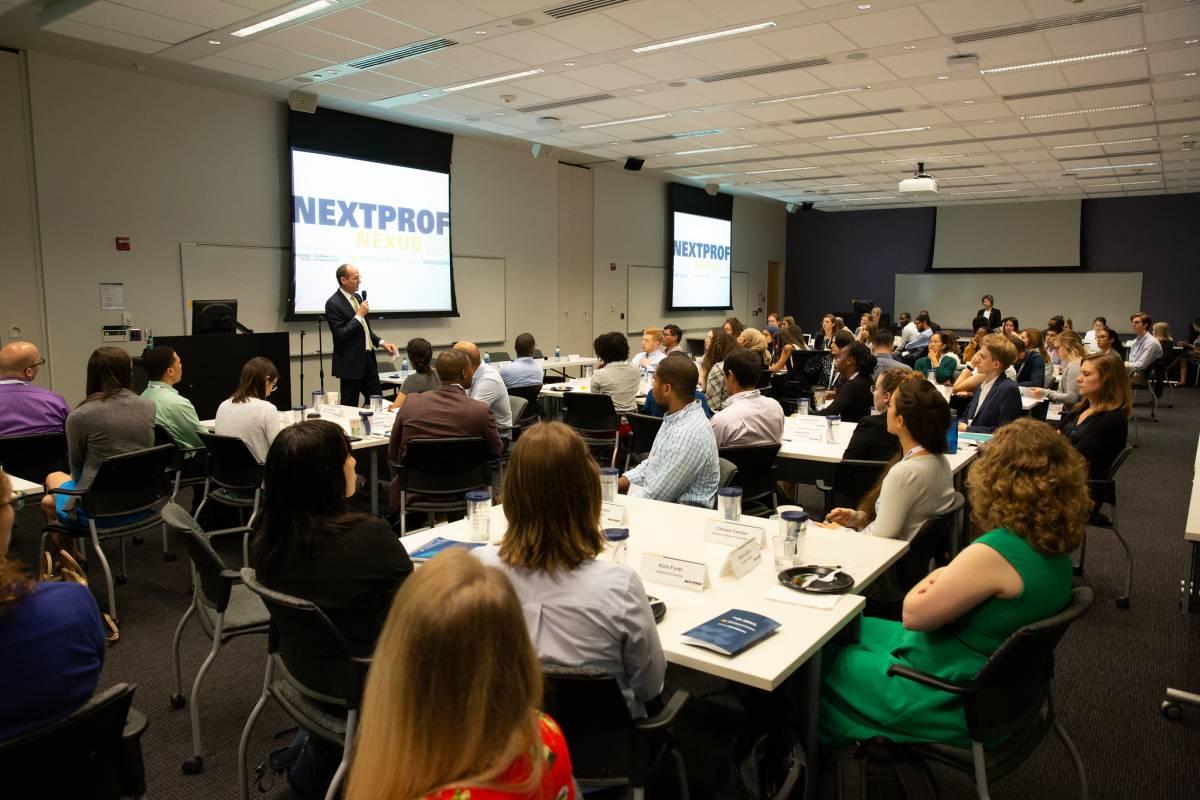
For students hoping to establish a career in academia, the various demands and expectations of holding a professorship can be daunting. It’s one reason Georgia Tech’s College of Engineering partnered with the University of Michigan and University of California at Berkeley to establish the NextProf Nexus program three years ago. The national mentoring workshop focuses on equipping senior-level Ph.D. candidates, postdoctoral researchers, and early-career scientists and researchers with the tools they need to succeed in academia. The initiative is also in place to help diversify the next generation of academic leaders.
This year’s event, which will be held in Ann Arbor, Michigan, on October 4-7, will include 11 members of the Georgia Tech community. The group will learn about the academic job market, meet potential mentors, attend panel discussions, and gain a better understanding of how to build successful research programs. After the workshop, the participants are also provided information on current faculty searches, including those at the three partner institutions.
A central component of NextProf Nexus’ goals involves increasing the prevalence of traditionally underrepresented minority groups in academia, thereby diversifying STEM fields. Students from traditionally underrepresented groups are encouraged to apply for the program, and applicants are asked to demonstrate their commitment to the principles of diversity, equity, and inclusion as part of the acceptance process.
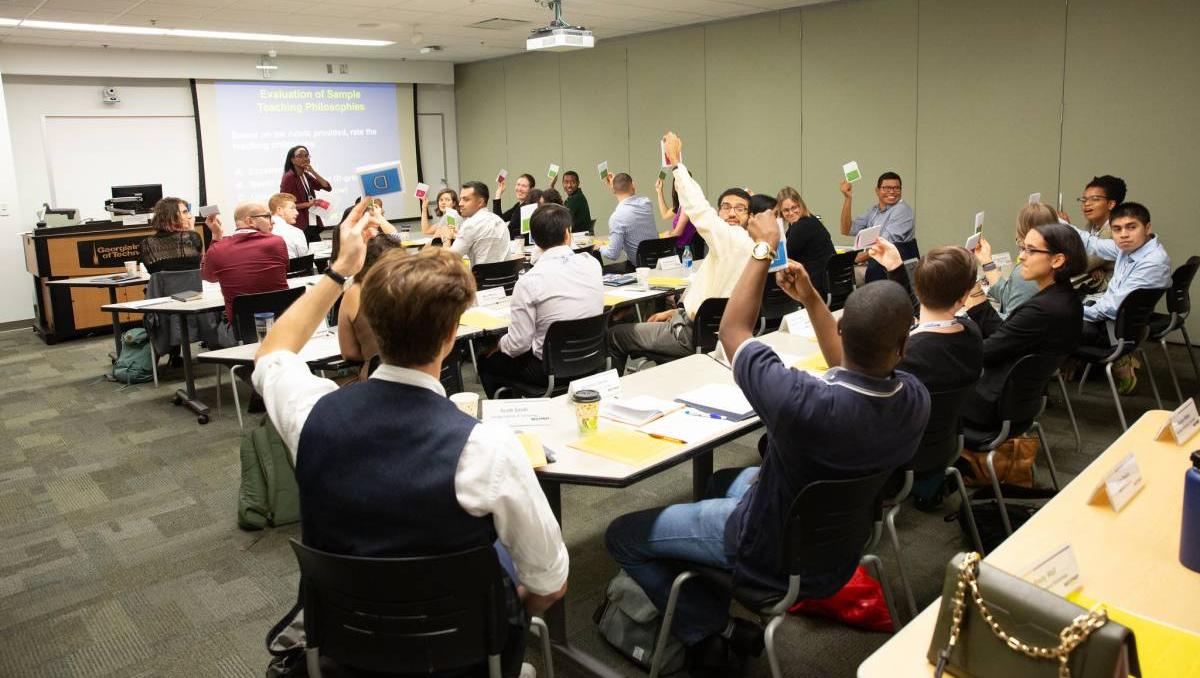
“NextProf Nexus gathers an extraordinary and diverse group of mentors to guide its participants through the faculty application and interview process,” said NextProf co-organizer Kim Kurtis, an assistant dean for faculty development and scholarship for the College of Engineering. “The depth of information and breadth of experience shared in this program prepares its participants not only for the application and interview processes, but also sets them up with the understanding of what it takes to be successful as an engineering faculty member, whether at a research-centered university or in a more teaching-intensive program.”
The program has already produced two Georgia Tech success stories. Joe Bozeman and Lauren Garten participated in 2019, when the event was held for the first time on Georgia Tech’s campus in Atlanta. Bozeman was a graduate student at the University of Illinois at Chicago. Garten was a postdoc at the U.S. Naval Research Lab. Today, they are both in their first semester as Georgia Tech assistant professors.
“NextProf Nexus was instrumental in helping me join Georgia Tech,” said Bozeman, who studies the sociodemographic impacts of the food-energy-water nexus in the School of Civil and Environmental Engineering. “The peer relationships I developed have grown into friendships and invaluable support groups. When you add this to the welcoming environment, networking with senior administrators and faculty, and the tangible guidance provided on navigating the application process, this program is unmatched.”
"The NextProf Nexus program was a great opportunity for me to develop a strong and diverse network while gaining perspective on the faculty application process,” said Garten, a researcher who focuses on developing new materials for energy and electronic application in the School of Materials Science and Engineering. “Engaging with the Georgia Tech community during the program was a critical step in what brought me here. I highly recommend this program to those interested in building a diverse community in academia."
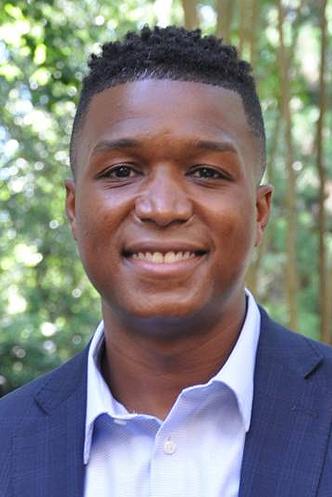
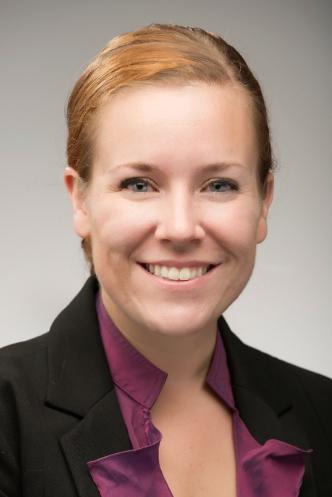
“The depth of information and breadth of experience shared in this program prepares its participants not only for the application and interview processes, but also sets them up with the understanding of what it takes to be successful as an engineering faculty member, whether at a research-centered university or in a more teaching-intensive program.” — Kim Kurtis
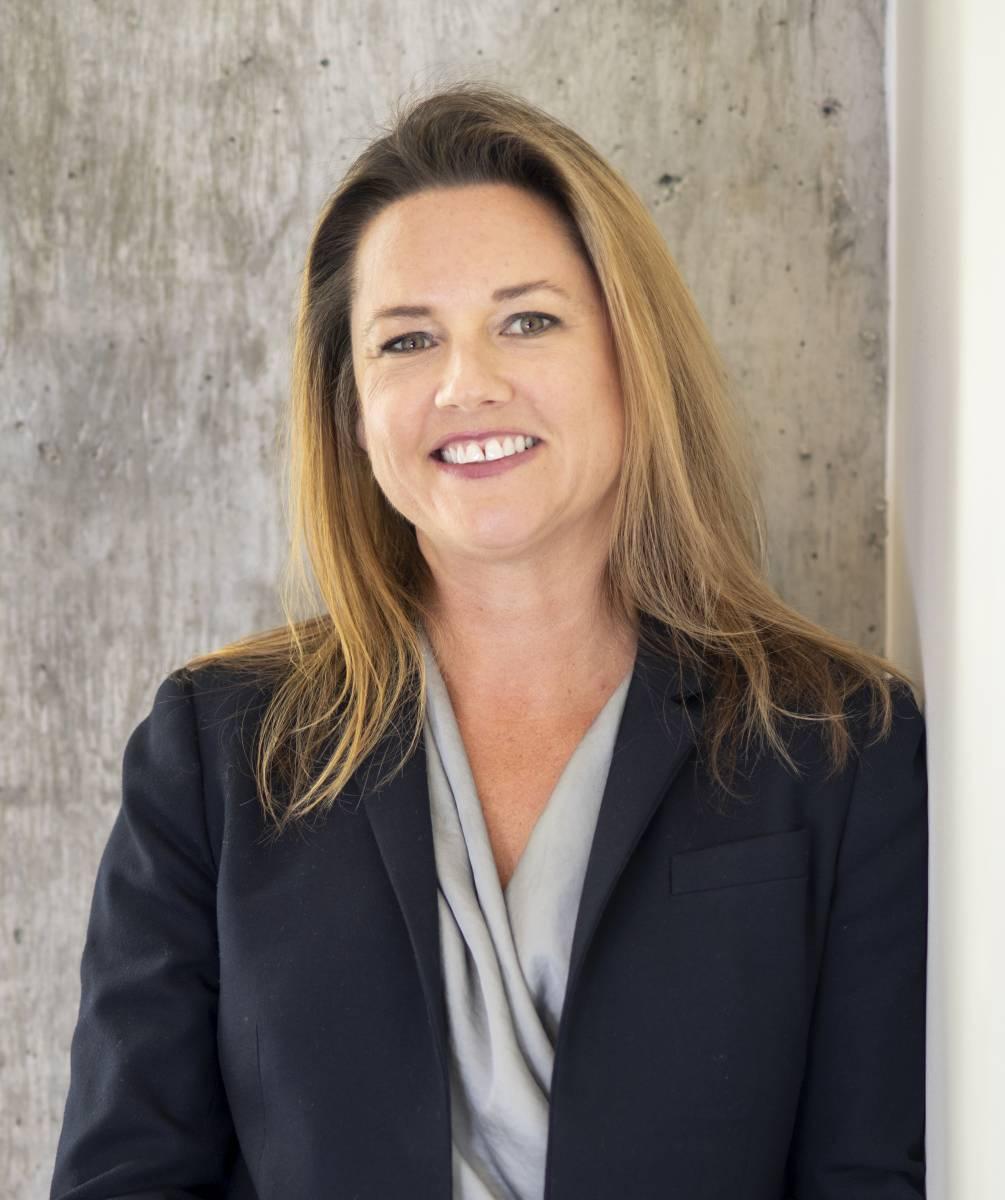
This year’s NextProf cohort of 47 participants from 18 universities were chosen based on their research, career aspirations, and commitment to inclusion and diversity. Those from Georgia Tech, which will send the most representatives to the event, reflect a broad range of disciplines and backgrounds across the College.
- Connor Armstrong: Ph.D. student (mechanical engineering) who researches the next generation of 3D and 4D printing technology through designing processes and materials in Jerry Qi’s lab.
- Isaiah Borne: Ph.D. student (chemical and biomolecular engineering) whose research focuses on developing porous liquids for industrial gas separations and is co-advised by Ryan Lively and Christopher Jones.
- Aline Eid: Ph.D. student (electrical and computer engineering) who is researching the harvesting of 5G energy to wirelessly power IoT devices in Manos Tentzeris’ lab.
- Asim Gazi: Ph.D. student (electrical and computer engineering) who researches the monitoring, modeling, and modulation of stress in both Omer Inan’s and Christopher Rozell’s labs.
- Karen Martin: Ph.D. student (mechanical engineering) who researches the use of PEG-based hydrogels to deliver mesenchymal stem cells to modulate the local immune environment and improve bone repair in in Andrés García's lab.
- Emily McGuinness: Ph.D. student (materials science and engineering) who researches vapor phase infiltration processing-structure-property relationships for the creation of hybrid membranes for chemical separations in Mark Losego’s lab.
- Renee Rios: Ph.D. student (civil and environmental engineering) who researches the durability of cementitious systems through the use of machine learning in Kim Kurtis’ lab.
- Matthew Rivera: Ph.D. student (chemical and biomolecular engineering) who researches the creation of new polymer-based composite membranes to improve the energy efficiency of industrial chemical separations in Ryan Lively’s lab.
- Andrew Tricker: graduate (chemical and biomolecular engineering) who researched the underlying phenomena of mechanocatalysis and its application for lignin depolymerization, ammonia synthesis, and plastics recycling in Carsten Sievers’ lab.
- Bryan Watson: Ph.D. student (mechanical engineering) who researches the use of biologically inspired design to improve the resilience of Systems of Systems in Bert Bras’ lab.
- Yan Zhang: Ph.D. student (chemical and biomolecular engineering) who is developing bacterial biosensors for point-of-care diagnostics in Mark Styczynski’s lab.
For more event details and application information, visit the program’s website.